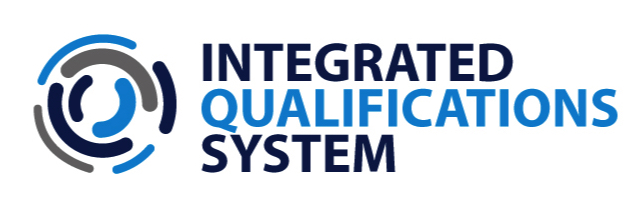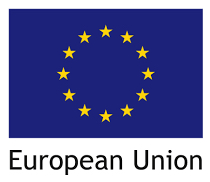FUNCTIONING IN THE SYSTEM
RESPONSIBILITIES OF AWARDING BODIES
Awarding bodies responsible for validation have certain responsibilities. These are specified by the act on the Integrated Qualifications System (IQS).
Each awarding body (AB) shall:
- publish detailed information on validation on its web page;
- have an internal quality assurance system in place;
- carry out an internal evaluation with reference to each market qualification it is licensed to certify (at least every 3 years), prepare a report on the internal evaluation and communicate the same to the EQAE;
- at the end of each quarter, communicate – through the Integrated Qualifications Register (IQR) – information on:
- the number of issued certificates,
- the amount of validation and certification fees,
- the amount of proceeds earned in a given quarter from validation and certification fees.

ON QUARTERLY BASIS, EACH AWARDING BODY SHALL PAY A FEE AMOUNTING TO 3% OF ITS PROCEEDS FROM VALIDATION AND CERTIFICATION FEES. THE MINIMUM FEE AMOUNT SHALL BE PLN 1 FROM EACH ISSUED DOCUMENT CONFIRMING THE AWARDING OF A MARKET QUALIFICATION.
VALIDATION PROCEDURE
Once the competent minister has granted the license and appointed an external quality assurance entity (EQAE), the awarding body (AB) shall have the right to carry out validation.
The act does not specify the frequency at which the AB is expected to carry out validation – this decision is left to the AB. Additionally, there is no set time-frame within which the AB must start performing validation.
Validation fees
Validation is performed against payment of a fee. Awarding bodies shall set the amount of fees payable for validation of a given qualification and shall collect all fees from candidates.
The fee amount shall depend on:
- the way validation is organised;
- the pricing policy adopted by a given awarding body.
Validation fees may vary from one awarding body to another, even if they offer validation of the same market qualification.
Each awarding body shall publish information on validation costs on its web page.
ENSURING PROPER CONDITIONS FOR VALIDATION
It is not required of an awarding body (AB) to provide all the resources referred to in organisational conditions – e.g. equipment or its own premises. What is more, it is not required to employ personnel – such as assessors, advisers or validation designers – on fixed term basis.
What an awarding body must do is ensure the conditions for validation identified in the qualification description – regardless of its organisational structure or the principles of its cooperation with other entities.
Cooperation between an awarding body and validating bodies
In practice, it is often the case that awarding bodies cooperate with other entities responsible for validation (validating bodies) – for example when:
- they have a complex structure – e.g. they are nationwide associations with local branches. In such a case, the headquarters of the association has the status of an awarding body and its regional branches handle validation as validating bodies;
- a company which specialises in a given area becomes an awarding body and subcontracts validation to training centres. The training centres offer premises, required equipment and personnel, who can take on the role of assessors.
The interested parties determine the rules of cooperation between an awarding body and validating bodies – in a contract or an agreement. The act on the Integrated Qualifications System does not impose any specific requirements in this respect.

IN ANY CASE, AN AWARDING BODY IS RESPONSIBLE FOR:
- PREPARING THE VALIDATION PROCEDURE,
- ENSURING THE QUALITY OF THE VALIDATION,
- FULFILMENT OF THE REPORTING OBLIGATIONS.
PERSONNEL OF AN AWARDING BODY (AB)

An awarding body (AB) shall make sure to employ assessors who meet the requirements specified in the qualification description. Typically, the qualification description will also include requirements as to the number of assessors, who should participate in the validation process or sit on the committee.
In the event an awarding body intends to provide support of a validation adviser in the course of the validation process, it shall employ such an adviser and make sure that he/she had been properly prepared for this role.
Validation assessors are experts, who make sure that the candidate has the knowledge and the skills required in the case of a given qualification. An assessor verifies learning outcomes of individuals subject to validation.
Apart for the specific requirements related to a given qualification, assessors should be prepared, by the awarding body, for the validation process in such a manner, as to be able to ensure an appropriate quality of the process. Therefore, they must know work standards and procedures applicable in a given awarding body and proceed accordingly.
A validation assessor should:
- understand validation objectives;
- be knowledgeable about validation;
- know the rules for assessing evidence and declarations regarding the attainment of learning outcomes;
- know how to use verification methods and tools;
- be experienced in verifying learning outcomes;
- be communicative;
- comply with high standards of work ethics and, particularly, remain absolutely unbiased when performing the assessment;
- have professional experience in the line of business, from which the qualifications included in his/her competence, as validation assessor, come from;
- have specific knowledge of the validation of learning outcomes required for the qualifications included in his/her scope of competence;
- know the required learning outcomes as well as verification criteria determined for the qualifications within his/her scope of competence;
- know the methods and tools applied for the purpose of verifying the required learning outcomes;
- know the criteria for formal and substantive assessment of evidence attesting to the possession of the required learning outcomes specified for the qualifications within his/her competence.

Validation advisers are experts providing support to individuals applying for a certificate at each stage of the validation process.
An important aspect of the role of a validation adviser is to support a candidate at the stage of identification of learning outcomes. An adviser supports the candidate in determining what the candidate already knows and can do and what he/she still has to learn in order to obtain the certificate.
In the event the analysis of evidence and declarations is used in the course of the validation process, an advisor may help the candidate collect relevant documents (at the stage of documenting the learning outcomes, i.e. preparing evidence and declarations to be assessed by assessors at the verification stage).
A validation adviser should:
- understand validation objectives;
- be knowledgeable about validation;
- be knowledgeable about education institutions and awarding bodies as well as employment market institutions and services offered by such institutions;
- know how to elicit new information;
- be familiar with methods and tools which are useful for identification and documenting of one’s competence;
- know the rules for verification of evidence and declarations regarding the attainment of learning outcomes;
- know how to work with various individuals – be open-minded;
- be free from prejudice;
- be willing to listen and be communicative;
- be a good motivator;
- comply with high standards of work ethics;
- have professional experience in the line of business, from which the qualifications included in his/her competence, as a validation adviser, come from;
- know the required learning outcomes as well as verification criteria determined for the qualifications within his/her scope of competence;
- know the methods and tools applied for the purpose of verifying the required learning outcomes;
- know the criteria for formal and substantive assessment of evidence attesting to the possession of the required learning outcomes specified for the qualifications within his/her competence.

A validation adviser meeting the above-mentioned requirements is capable of effectively supporting candidates who decided to undergo validation. If additionally prepared, an adviser will be also fit to handle the responsibilities of a validation assessor.
QUALITY ASSURANCE

Quality assurance is a priority for the Integrated Qualifications System (IQS).
This way, both employees and employers can rest assured that certificates confirming given qualifications are credible and valuable.
The high quality of awarded qualifications is important for:
- employees – as it facilitates planning their professional development and improves their position on the employment market;
- employers – in the case of which high qualifications of their employees contribute to the potential of their companies;
- the society, including the national economy – as the quality of qualifications impacts the strength of as well as the potential for improved possibilities on the employment market.

Competent ministers supervise validation and certification of regulated and market qualifications incorporated into the IQS.
Every 2 years, each awarding body (AB) submits to the competent minister a report on its validation and certification activities.
Additionally, the system also provides for external quality assurance entities (EQAE). These entities cooperate with ABs as well as the minister. Their task is to analyse how ABs ensure the quality of qualification awarding (i.e. the quality of the validation process). Every 3 years, each EQAE submits a report on their work to competent ministers.
The ministers may decide to have an AB as well as an EQAE audited. They shall have the right to apply sanctions – for example to:
- revoke the license previously granted to the AB;
- remove an entity from the list of EQAE.
Internal and external quality assurance systems
In each body, both validation and certification processes are subject to an internal as well as an external quality assurance system.
The internal quality assurance system is designed by the awarding body. The system affects rules of conduct, procedures, methods and organisational solutions.
Its objective is to ensure the correct course of validation and certification as well as improvement of both processes as performed by the awarding body. This is achieved by means of:
- applying solutions designed to separate the education and training process from validation,
- constant monitoring and an on-going assessment of validation and certification processes,
- periodic external evaluation of validation and certification processes.
An external quality assurance entity (EQAE) supervises an awarding body (AB) in terms of execution of the external quality assurance role. This is achieved by means of:
- monitoring the internal quality assurance system applied by the AB,
- periodic verification of the fulfilment of the requirements specified by the act on the part of the AB,
- periodic external evaluation of validation and certification processes as executed by the AB and of the functioning of the internal quality assurance system in place.
EQAE functions are assigned to the appointed entity by the minister competent for a given qualification.

EXTERNAL QUALITY ASSURANCE ENTITIES (EQAE)

AN EXTERNAL QUALITY ASSURANCE ENTITY (EQAE) INSPECTS THE QUALITY OF VALIDATION AS PERFORMED BY THE AWARDING BODY (AB).

External quality assurance entities are institutions which have been granted a relevant license by the competent minister.
An EQAE supports an AB in validation and certification processes.
An EQAE is responsible for:
- constant monitoring of AB activities,
- periodic external evaluation of AB activities.
EQAE responsibilities include:
- monitoring the internal quality assurance system applied by a given AB (based on the analysis of, among other things: internal evaluation reports, quarterly information communicated by the AB or reports on its activity),
- monitoring the fulfilment of applicable requirements by the AB:
- regarding organizational and personnel-related conditions, which enable performing validation in line with the qualification description,
- related to its economic activity and no arrears with taxes and insurance contributions,
- external evaluation of validation and certification processes carried out by a given AB and of the performance of the internal quality assurance system applied by the AB.
Additionally, an EQAE:
- supports the AB in the process of improving validation and certification processes as well as the internal quality assurance system;
- collects and analyses information intended to improve the requirements regarding validation and quality assurance in the qualification description;
- recommends changes to the requirements regarding validation and quality assurance in the qualification description.
COOPERATION BETWEEN AWARDING BODIES AND EXTERNAL QUALITY ASSURANCE ENTITIES (EQAE)

An external quality assurance entity (EQAE), among other things, shall have the right to:
- access documents and observe activities of an awarding body (AB) as well as those of its validating bodies – i.e. provided the AB cooperates with validating bodies;
- request additional information from the AB regarding validation, certification and internal quality assurance.
The EQAE must inform the competent minister immediately if it suspects that the AB does not follow the applicable rules and does not meet the requirements specified in the qualification description.

THE COMPETENT MINISTER SUPERVISING THE QUALIFICATION SHOULD INITIATE A COOPERATION PROCESS AMONG ALL PARTIES INVOLVED IN A GIVEN QUALIFICATION.
This can be done by holding a meeting of representatives of: the ministry, the AB and the EQAE. Such a meeting provides an opportunity for initiation of partnership-like cooperation among the parties.
A LIST OF EXTERNAL QUALITY ASSURANCE ENTITIES (EQAE)
At this point, 22 entities, assigned to selected groups of qualifications, have been licensed as external quality assurance entities (EQAE).
Enrolment of EQAE takes place at least every 3 years and is announced by the Minister of National Education. The announcement is published on the website of the IQS.
In practice, the minister announces a contest when there is a need to do so. For example, in the event a qualification is being incorporated into the system, which belongs to a group, for which there:
- is no appropriately licensed entity,
- a greater number of such entities is needed.
The table below presents EQAEs assigned to particular groups of qualifications.











